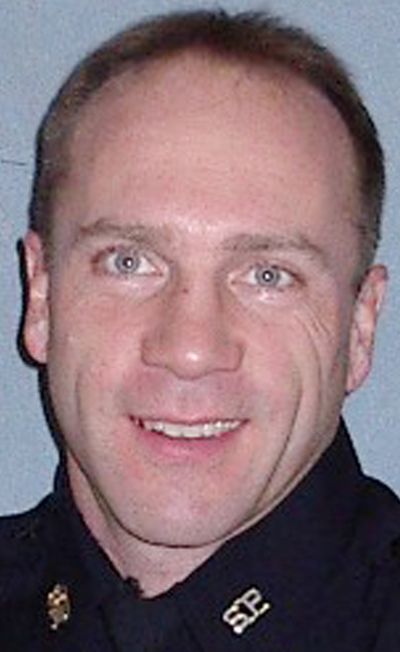Council rejects deal to rehire, pay fired officer
Proposal to grant back pay, rehire fired officer rejected unanimously

A plan to rehire a fired police sergeant and give him $275,000 in back pay was rejected by an outraged Spokane City Council on Monday.
“I not only say, ‘No,’ but I say, ‘Hell no,’ ” Councilman Mike Fagan declared, drawing brief decorum-violating applause from some in the council audience.
“You can’t clap,” said Council President Ben Stuckart. “But that was good, Councilman Fagan.”
The council unanimously rejected the plan, a negotiated proposed settlement with former Sgt. Brad Thoma, who argues he was wrongfully terminated in 2009 after a drunken off-duty crash.
Last week, Mayor David Condon asked the City Council to delay a decision on the agreement that would have rehired Thoma in a demoted position as a detective as of March 1. He also would have received about $275,000 in back pay based on his sergeant’s position. His attorney, Bob Dunn, would have gotten an additional $15,000.
Thoma was driving a pickup in September 2009 when he hit another pickup near the intersection of Farwell Road and U.S. Highway 2, then drove away. Thoma, whose blood alcohol level was measured at 0.171 after the crash, avoided criminal prosecution under an agreement approved in Spokane County District Court.
He was fired by the city in December 2009 after he declined an offer of alternative city work during the time he would have been required to have a breath test installed in his car in order to start it. The city also could have approved a waiver for him to drive without the breath test, but then-Chief Anne Kirkpatrick declined to do that. The Spokane Police Guild filed a grievance over his firing, and Thoma filed a civil claim and complaint with the state Human Rights Commission.
Thoma claims that the city is discriminating against him for being an alcoholic and that he is protected by the Americans with Disabilities Act.
The Human Rights Commission helped broker the deal, but when it became public, commission officials said it would not be approved until it received further scrutiny.
Condon and Thoma signed the four-page settlement on Feb. 13. Once commission officials backed away from the deal last week, however, Condon said the City Council should delay a vote until after the state’s new investigation.
Dunn said Monday that Thoma has requested that the Human Rights Commission withdraw his complaint. Dunn said that the agreement doesn’t need the state commission’s approval and that if the council doesn’t approve the settlement by noon Wednesday, he will file a lawsuit. Soon after Thoma was fired, he filed a claim with the city that set damages at $4 million.
“The message from Stuckart is: ‘We don’t care what federal law is. We don’t care what state law is. We’re going to make Spokane law.’ Well, Spokane law is going to get him sued,” Dunn said in response to Stuckart’s stance that approving the deal would send the wrong message. “They don’t need to get sued. We have an agreement.”
Councilman Mike Allen said his vote was a message to city staff members to fight harder.
“Is our system so broke or our process so broke that staff and legal counsel for the city think this is a justified outcome for our citizens?” Allen said.
After the meeting, Stuckart said Dunn sent city officials a new proposed settlement Monday evening that had slightly more favorable terms. Stuckart said Thoma’s request to withdraw his complaint with the Human Rights Commission could be a sign that he was worried that the commission won’t rule on his behalf.
Dunn has said the city should have known that Thoma was an alcoholic prior to the collision. Even so, Thoma said in his complaint to the commission that he didn’t inform the city that he was an alcoholic until after the crash in November 2009.
“How can you accommodate something if you don’t know?” Stuckart said.
Dunn acknowledged that the city disputes that the department knew that Thoma was an alcoholic before the crash, but said there is a more important date.
“It’s unequivocally clear that they knew he had been diagnosed by a doctor as an alcoholic before he was disciplined,” Dunn said.
Other Spokane police officers have been caught driving drunk but remained employed, Dunn said. He stressed that Thoma was off duty when the incident occurred.
Under the Americans with Disabilities Act, the city shouldn’t demote Thoma, Dunn said.
Thoma “is a lot more willing to accept punishment in the way of a demotion than I am as his lawyer,” Dunn said.